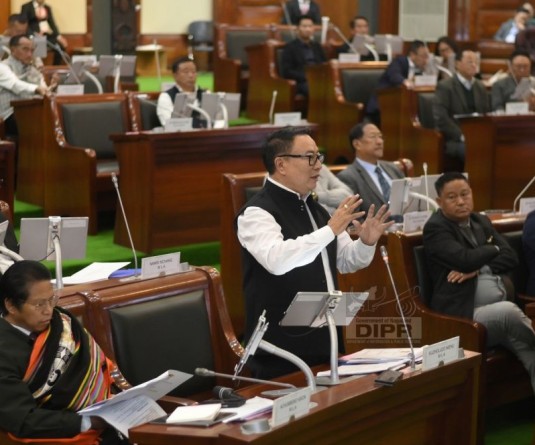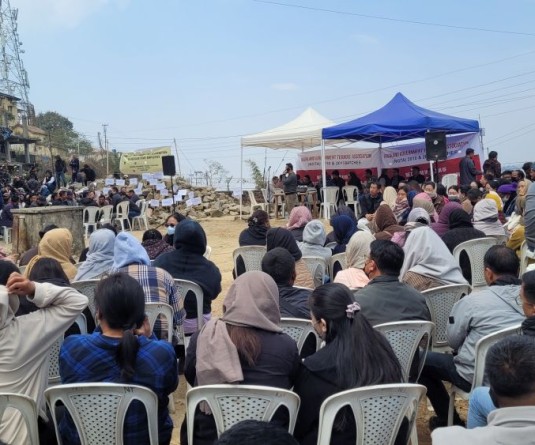
Calls to remove non-detention policy, include Nagaland's history in school curriculum...
Kohima, March 15 (MExN): Angami Students’ Union (ASU) has submitted a representation to the state Minister of Education urging for immediate redressal of matters pertaining to the well being of the educational system of the state and society.
The representation appended by President Zakie Khate, and General Secretary Sedevikho Tsiikrii stated that Right to Education Act (RTE) 2009 has been introduced in Nagaland. However, ASU observed that certain unprecedented technical failures are being confronted both by the students and the system itself. The non-detention policy until standard 8 under the Act is the most crucial and inapplicable factor to our education system, it noted. It argued that if there had been any government policy for alternate measures in place for the drop outs in this filtering process, then perhaps, the act would normally run smoothly.
In 2013, ASU pointed out, 35000 students appeared Class IX, but 15000 students failed and 20,000 passed (57 % passed and 43% failed). “If this trend continues at an average 10,000 drop outs every year, our education system itself has the alarming potentiality to produce 50,000 drop out in a period of 5 years.” The complacent and very casual manner of both the teachers and students with least concern of giving any effort in most cases and coupled with that, very casual notion that no matter whatever the case maybe, none can be detained is taking a very heavy toll, ASU added.
ASU further pointed out that comparative results between government run and private run institutions show that the passed percentage or rather success of private undertakings fare much better than the government institutions. ASU maintained that government institutions are getting huge amount of funding under RMSA and SSA schemes, but the private institutions without such funding could still succeed. The more experienced teachers and best recruited through NPSC are in the government institutions, it said. Most private institutions are operated by the community or the Churches in Nagaland. Such community sponsored institutions deserves attention by the government, the representation asserted.
ASU also lamented that little or no history of Nagaland about its social, economic, religious and political education is found in “our” educational system in the initial stages. Very bulky and strenuous studies on ancient and medieval Indian history formed its curriculum.
In light of the above issues, ASU recommended that non-detention policy under RTE Act be removed. RMSA and SSA funding should include community and Church managed and sponsored institutions. Nagaland’s history particularly its social, religious, economy and political history must be a part of the curriculum in the initial stages between standard 1 and 8. The same must be done through reduction of the rather very bulky and strenuous studies, it stated.
ASU further asked the minister to discuss the aforementioned three matters in the upcoming State Legislative Assembly and subsequently initiate measures through which necessary rectifications can be made in the Act by instituting an expert panel or committee.






